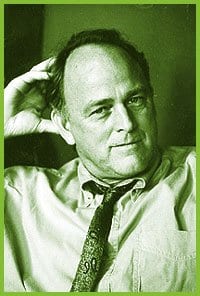“I hope I die before I get old,” sang Roger Daltrey of The Who, the skin of his face as tight over his cheekbones as the jeans that clung to his slim hips and lean legs. He was “talkin’ bout my generation.” Our mantra was: “Never trust anyone over 30.” Today, when the skin on our faces is as loose and as worn as the chinos that mask our thickening torsos, our motto seems to have shifted to don’t trust anyone under 30. We complain that they are not activists the way we were back when gay was barely part of the day-to-day lexicon.
What are young people like today? I wonder each time I hear someone criticize teenagers and the 20-somethings. What are their issues? Are they that different from us when we were young? I dropped in on the Youth Group of Pink Triangle Services in late October to ask.
The group of about 25 gay, lesbian, bisexual and transsexual youth, for whom my visit came unannounced, was a diverse and eclectic group. The first thing that struck me was their collegiality. They circled the room. Men sat next to women. On one side, three of them were entwined – the man on the highest chair had his legs around the chest of another man squatting on the floor while a woman nestled within his drawn-up knees.
When I explained the purpose of my visit – to listen and record what motivated them – they were initially reluctant. But, as with any group, after the first few spoke, others jumped in. It was an animated and lively discussion that reflected their reality, their lives at this time, and also challenged adult perceptions.
“Homophobia in the schools,” a first young man volunteered. “It is getting better, but it could still be improved. I have worked with people who have faced discrimination in the schools.”
Several agree this is an ongoing problem. One woman attributed it to the lack of proper sex education. Teaching about sexual orientation should start much earlier, with children. “Young kids need to know that a different sexual orientation is okay.” “But,” interjected another woman, “it should not just be about gays or lesbians but also about bisexuality and transsexualism.”
“It’s all about labels,” another guy suggested. “Not just about how we label others but ourselves as well. Proper information should be accessible on any issue: suicide, addiction and STDs. Young people need to know how to find the facts and yet realize information in the media or on the net is often biased.”
Gay issues, the leader of the group pointed out, have changed a lot over the years. Thirty years ago, the gay revolution came to the forefront. What young people face today is different.
“In a sense, we are living within the fight for recognition rather than leading the forefront of it. Marriage, for instance, is about dignity, rights for all. But we are young, just starting out. At this point in our lives, marriage is simply not important.”
Why do gay people want to get married, asked a participant. For him, marriage is a heterosexual institution, one frequently doomed to failure.
What seems to be more essential for this group is that adults take their views seriously. They feel they are often asked to part-icipate, but the request is merely tokenism. “What’s the point of getting involved if you are discounted? Young people have a different perspective to bring. We particularly need to be there when youth is being addressed.”
They need their own space; things that are targetted at them. They mention a coffeehouse for youth that will start at the Centretown Health Centre.
The Ottawa School of Art will be holding art courses as part of an art and diversity initiative. Another mentioned that they have begun a magazine to give youth in the GBLT community a voice.
A young transsexual stressed that there is a lack of trans visibility.
There is no protection, even under the anti-discrimination and hate crime legislation being implemented. Young transsexuals do not have access to proper services despite the fact that transsexuals make up the largest component of youth suicide in the GLBT community. She noted that there will be a Transgender Day of Remembrance on Nov 20 at 7pm at the Human Rights Memorial on Elgin Street. It will be a vigil to recall those who have died due to prejudices, violence or by taking their own lives.
I asked them if they are active only on gay issues. Do they engage in larger issues, such as the environment or global matters? They called me to task for suggesting gay issues are less important. I agreed my wording was value-laden. But several respond that they are concerned and involved in social activism in a wide range of topics.

 Why you can trust Xtra
Why you can trust Xtra


